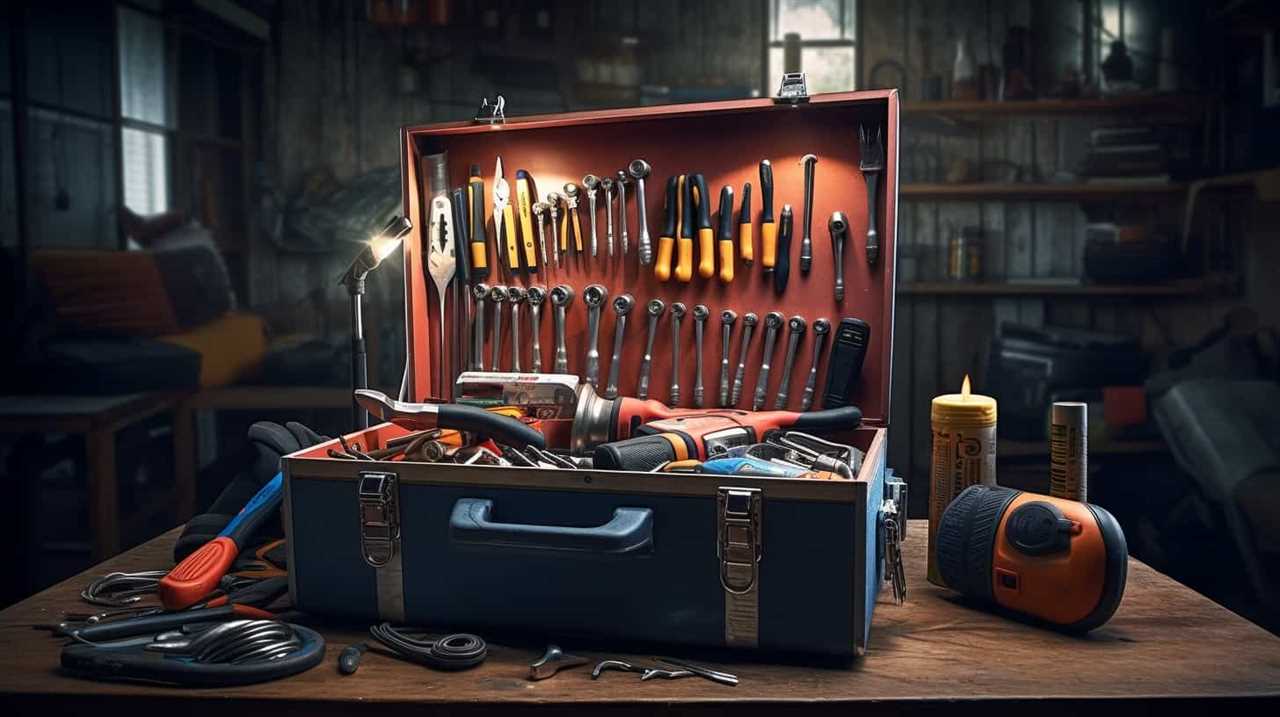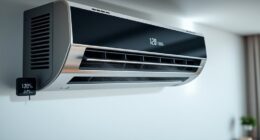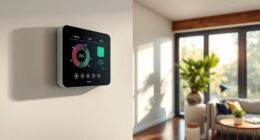Dealing with a malfunctioning HVAC system is a common headache for many people. However, when it comes to large commercial heat pumps, it’s a whole new challenge. Understanding how these systems work is crucial in order to effectively manage them.
In this article, we’ll delve into the key differences between residential and commercial heat pumps, factors to consider when choosing a system, best practices for installation, and maintenance tips.
Get ready to save time, money, and headaches with our comprehensive guide to commercial-grade heat pumps.
Key Takeaways
- Commercial-grade heat pumps provide both heating and cooling for year-round comfort.
- They are highly efficient, resulting in energy savings and reduced operating costs.
- Commercial heat pumps are more powerful and capable of heating or cooling larger spaces compared to residential heat pumps.
- While commercial heat pump applications are generally more expensive upfront, they are more cost-effective in the long run.
Overview of Commercial-Grade Heat Pumps
In this section, we’ll provide an overview of commercial-grade heat pumps.
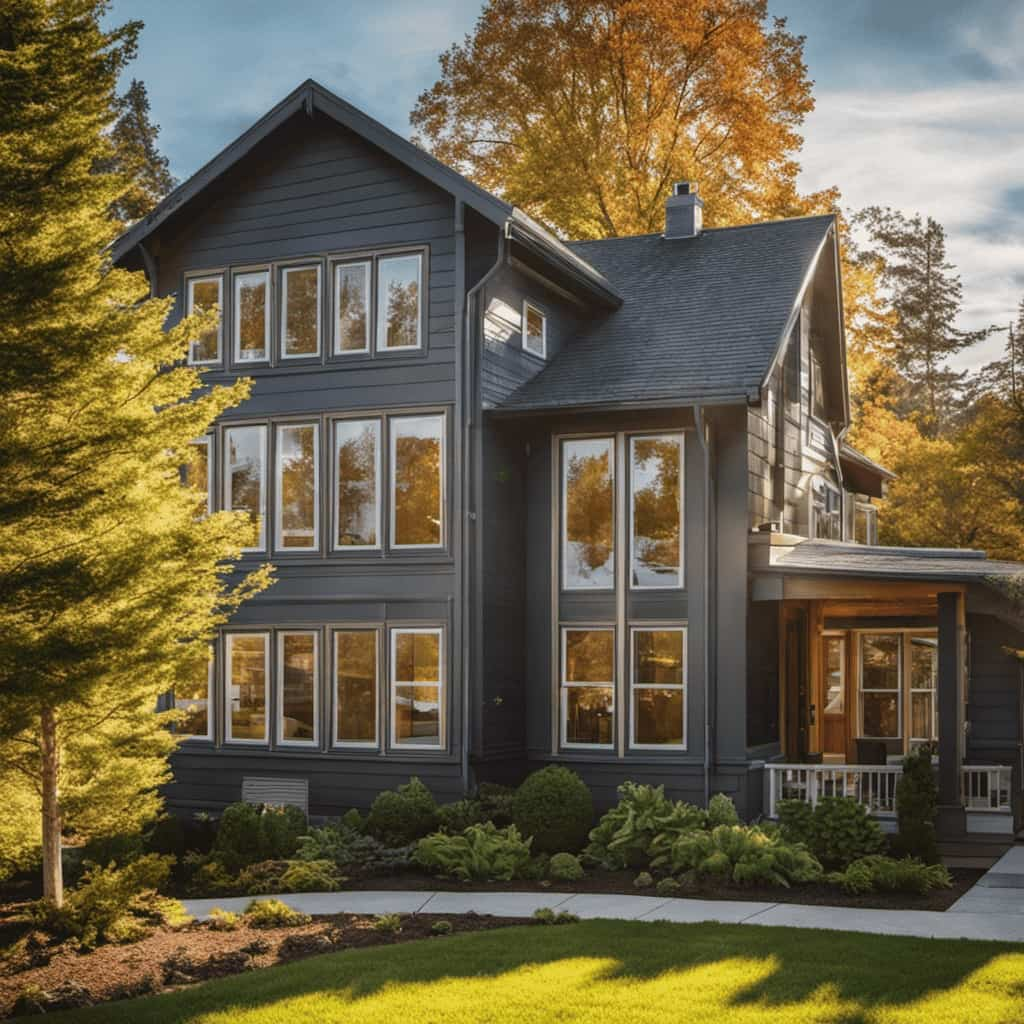
Commercial heat pump systems offer a wide range of key features, benefits, and advantages that make them ideal for various applications. One key feature is their ability to provide both heating and cooling, allowing for year-round comfort. These heat pumps are designed to be highly efficient, resulting in energy savings and reduced operating costs. They also offer the advantage of being environmentally friendly, as they use renewable energy sources such as geothermal or air-to-water systems.
Common applications for commercial heat pump systems include heating and cooling large commercial buildings, such as office complexes, hotels, hospitals, and shopping centers. Additionally, they’re often used in industrial processes that require precise temperature control.
Key Differences Between Residential and Commercial Heat Pump Applications
While residential heat pump applications focus on individual homes, commercial heat pump applications are designed for larger-scale buildings and facilities. There are several key differences between residential and commercial heat pump applications, including performance and cost.
In terms of performance, commercial heat pumps are typically more powerful and capable of heating or cooling larger spaces compared to residential heat pumps. This is because commercial buildings often have higher heating and cooling demands due to their size and occupancy levels. Additionally, commercial heat pumps are designed to operate continuously and efficiently, even under heavy loads.
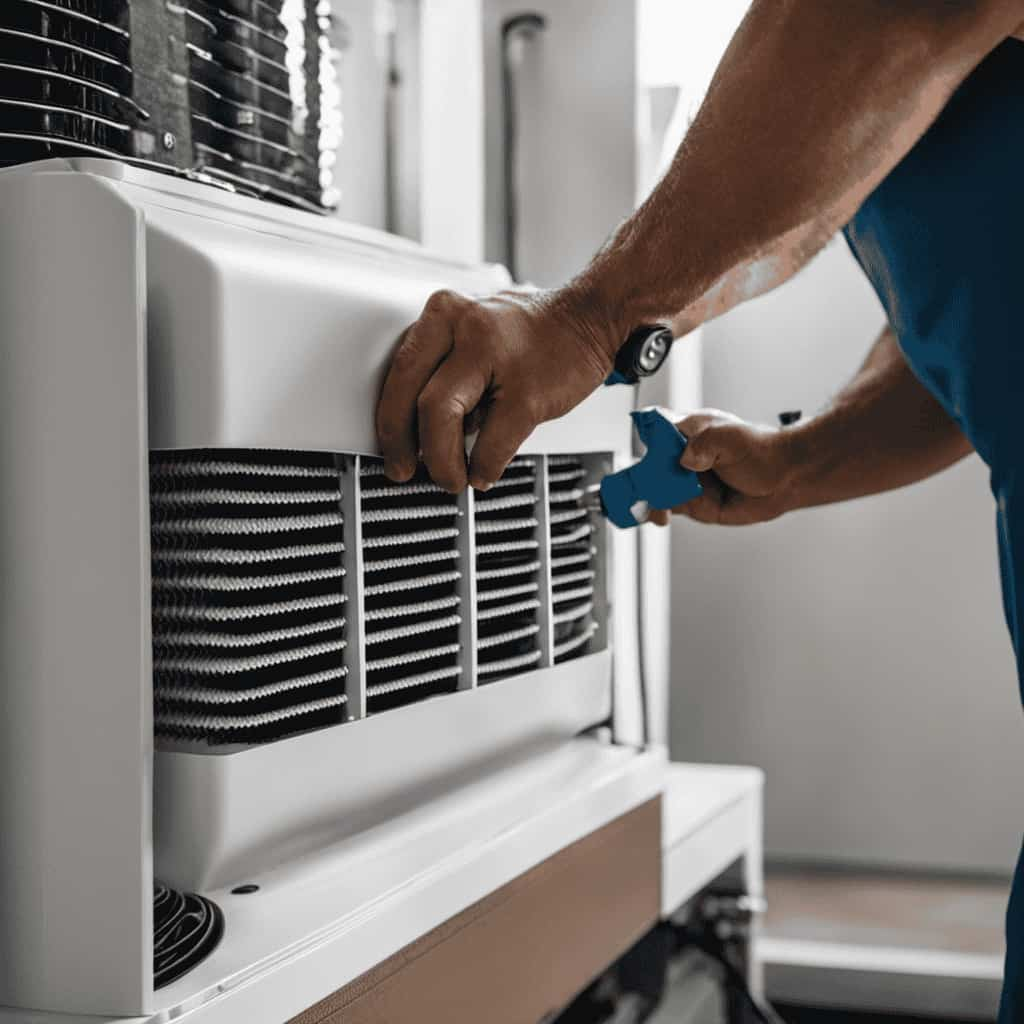
When it comes to cost, commercial heat pump applications are generally more expensive upfront compared to residential applications. This is because commercial heat pumps are larger and require more complex installation and maintenance. However, commercial heat pumps are often more cost-effective in the long run due to their higher efficiency and ability to serve larger areas.
To illustrate the differences between residential and commercial heat pump applications, let’s compare them in the following table:
| Aspect | Residential Heat Pump Applications | Commercial Heat Pump Applications |
|---|---|---|
| Performance | Suitable for individual homes | Suitable for larger buildings |
| Cost | Lower upfront cost | Higher upfront cost |
| Efficiency | Lower overall efficiency | Higher overall efficiency |
| Installation Complexity | Less complex | More complex |
Factors to Consider When Choosing a Commercial Heat Pump System
When choosing a commercial heat pump system, there are several factors to consider.
First, it’s important to look at the energy efficiency ratings of the system. This will determine how effectively the heat pump can convert energy into heat or cool air.
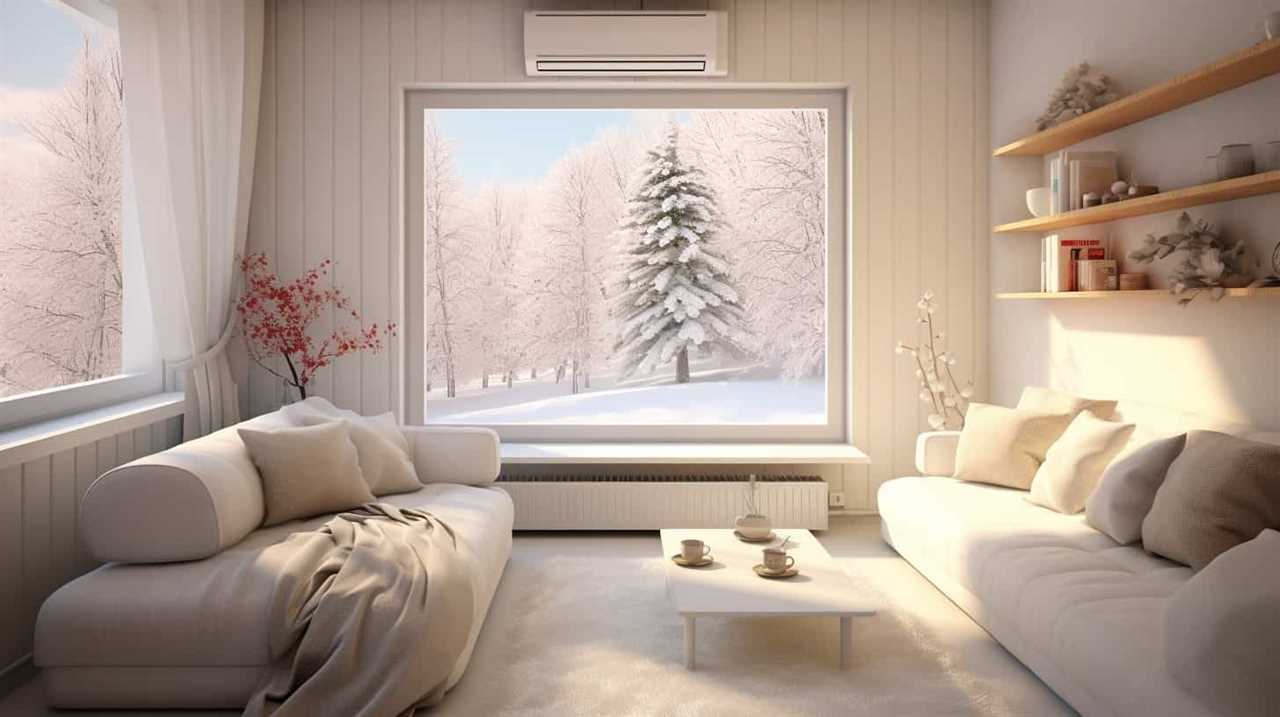
Additionally, the installation and maintenance requirements should be taken into account, as these can affect the overall cost and lifespan of the system.
Lastly, the heating and cooling capacity of the heat pump should be evaluated to ensure it can adequately meet the needs of the commercial space.
Energy Efficiency Ratings
One important factor to consider when choosing a commercial heat pump system is its energy efficiency rating. Energy efficiency benefits both the environment and your business by reducing energy consumption and lowering utility costs. To determine the energy efficiency of a heat pump system, it is essential to look at its energy ratings. These ratings provide valuable information about the system’s performance and indicate how effectively it converts electricity into heating or cooling. The most common energy efficiency ratings for heat pumps are the Seasonal Energy Efficiency Ratio (SEER) and the Heating Seasonal Performance Factor (HSPF). SEER measures cooling efficiency, while HSPF measures heating efficiency. Higher SEER and HSPF ratings indicate better energy efficiency. When comparing different heat pump systems, it is crucial to consider their energy efficiency ratings to make an informed decision that aligns with your business’s energy-saving goals.
| Energy Efficiency Rating | Description |
|---|---|
| SEER | Measures cooling efficiency and indicates how well the system converts electricity into cooling. Higher SEER ratings mean better energy efficiency. |
| HSPF | Measures heating efficiency and indicates how well the system converts electricity into heating. Higher HSPF ratings mean better energy efficiency. |
Installation and Maintenance
We frequently evaluate installation and maintenance factors when choosing a commercial heat pump system. Proper installation is crucial to ensure optimal performance and energy efficiency. Some installation challenges to consider include:

- Site suitability: Assessing if the site meets the requirements for adequate space, ventilation, and accessibility for installation.
- Electrical requirements: Determining if the electrical system can support the heat pump’s power demands.
- System integration: Ensuring seamless integration with existing HVAC systems and controls.
- Water source availability: Confirming the availability of an appropriate water source, such as a well or lake, for water-source heat pump systems.
- Noise considerations: Addressing noise concerns to minimize disruptions in commercial settings.
Maintenance is also essential to keep the heat pump system running smoothly. Common maintenance issues include:
- Regular filter cleaning or replacement to maintain proper airflow.
- Inspecting and cleaning coils to prevent dirt buildup and maintain optimal heat transfer.
- Checking refrigerant levels and ensuring there are no leaks.
- Lubricating motors and bearings to reduce friction and extend their lifespan.
- Conducting routine inspections and preventive maintenance to identify and address any issues before they escalate.
Heating and Cooling Capacity
To accurately select a commercial heat pump system, we must consider the heating and cooling capacity requirements. This involves conducting a heating and cooling load calculation to determine the amount of heat that needs to be added or removed from a space. The calculation takes into account factors such as the size of the space, insulation levels, and geographical location.
By analyzing the heat pump performance, we can determine if the system is capable of meeting the required heating and cooling capacity. This analysis considers factors such as the coefficient of performance (COP) and energy efficiency ratio (EER) of the heat pump.
It’s crucial to choose a heat pump system that can handle the heating and cooling demands of the specific commercial application to ensure optimal comfort and energy efficiency.

Best Practices for Installing Commercial-Grade Heat Pumps
When it comes to installing commercial-grade heat pumps, there are several best practices that should be followed.
Firstly, careful consideration must be given to the location and placement of the heat pump, taking into account factors such as accessibility, noise levels, and potential obstructions.
Secondly, proper sizing requirements should be determined to ensure that the heat pump is able to effectively meet the heating and cooling demands of the space.
Lastly, regular maintenance and servicing are essential to ensure the longevity and optimal performance of the heat pump system.
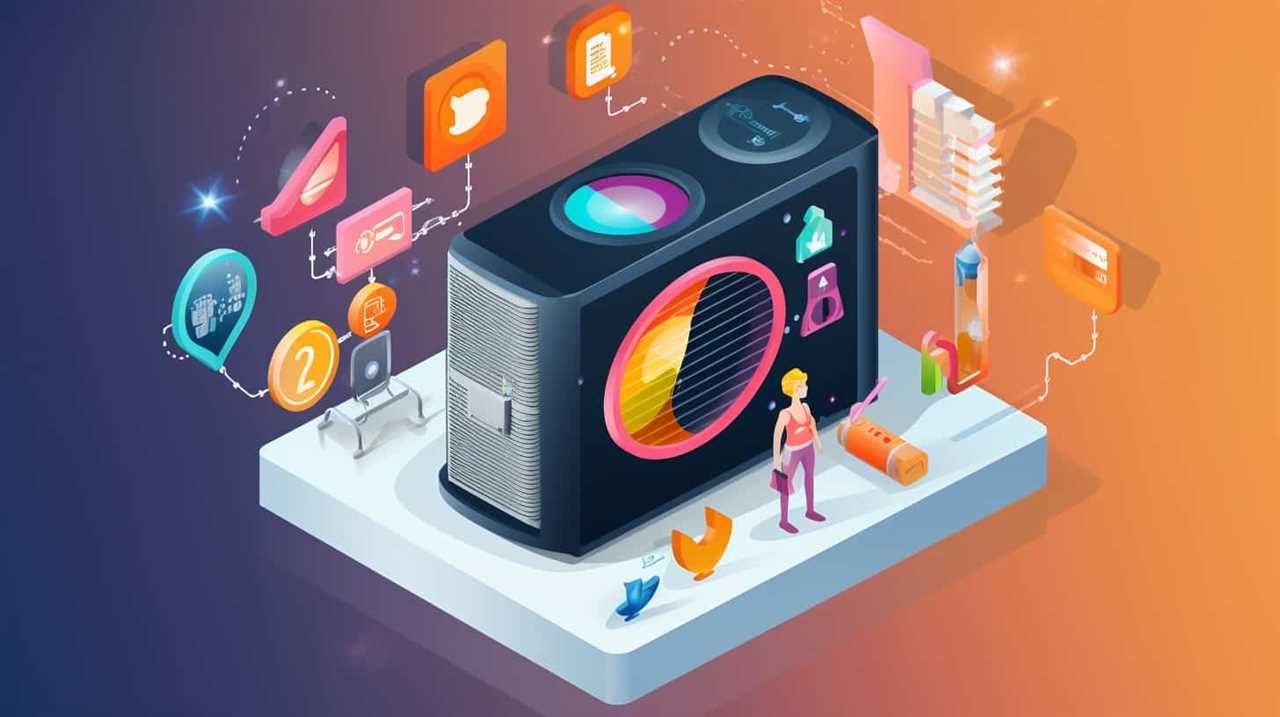
Location and Placement
The location and placement of commercial-grade heat pumps are crucial factors to consider for optimal installation. Proper placement considerations ensure efficient operation and maximum performance. Here are some optimal locations to keep in mind:
-
Proximity to the load: Placing the heat pump close to the area it serves reduces heat loss in the distribution system.
-
Accessibility for maintenance: Easy access to the heat pump allows for regular inspections and servicing, ensuring its longevity.
-
Avoiding direct sunlight: Shielding the heat pump from direct sunlight prevents overheating and potential damage.

-
Avoiding obstructions: Placing the heat pump away from obstructions such as trees or walls ensures adequate airflow and prevents blockages.
-
Noise reduction: Locating the heat pump away from sensitive areas or using sound barriers minimizes any potential noise disruptions.
Considering these factors during the installation process will help optimize the performance and longevity of commercial-grade heat pumps, ensuring reliable heating and cooling for your establishment.
Proper Sizing Requirements
We recommend considering the facility’s specific heating and cooling needs and selecting the appropriate size of the commercial-grade heat pump to ensure efficient operation. Proper sizing techniques are crucial in achieving optimal performance and energy efficiency.

When it comes to sizing commercial-grade heat pumps, it’s essential to follow industry standards for sizing to avoid under or oversized units. Undersized units may struggle to meet the facility’s heating and cooling demands, resulting in poor performance and increased energy consumption. On the other hand, oversized units can lead to frequent cycling, inefficient operation, and unnecessary wear and tear.
To determine the proper size, factors such as the building’s square footage, insulation levels, and climate conditions must be considered. Consulting with a professional HVAC contractor who’s knowledgeable about industry standards for sizing is highly recommended to ensure accurate sizing and efficient operation of the commercial-grade heat pump.
Maintenance and Servicing
Our team recommends regular maintenance and servicing for optimal performance and longevity of commercial-grade heat pumps. By implementing preventive maintenance, you can minimize the risk of common servicing issues and ensure the smooth operation of your heat pump system.
Here are some key practices to keep in mind:
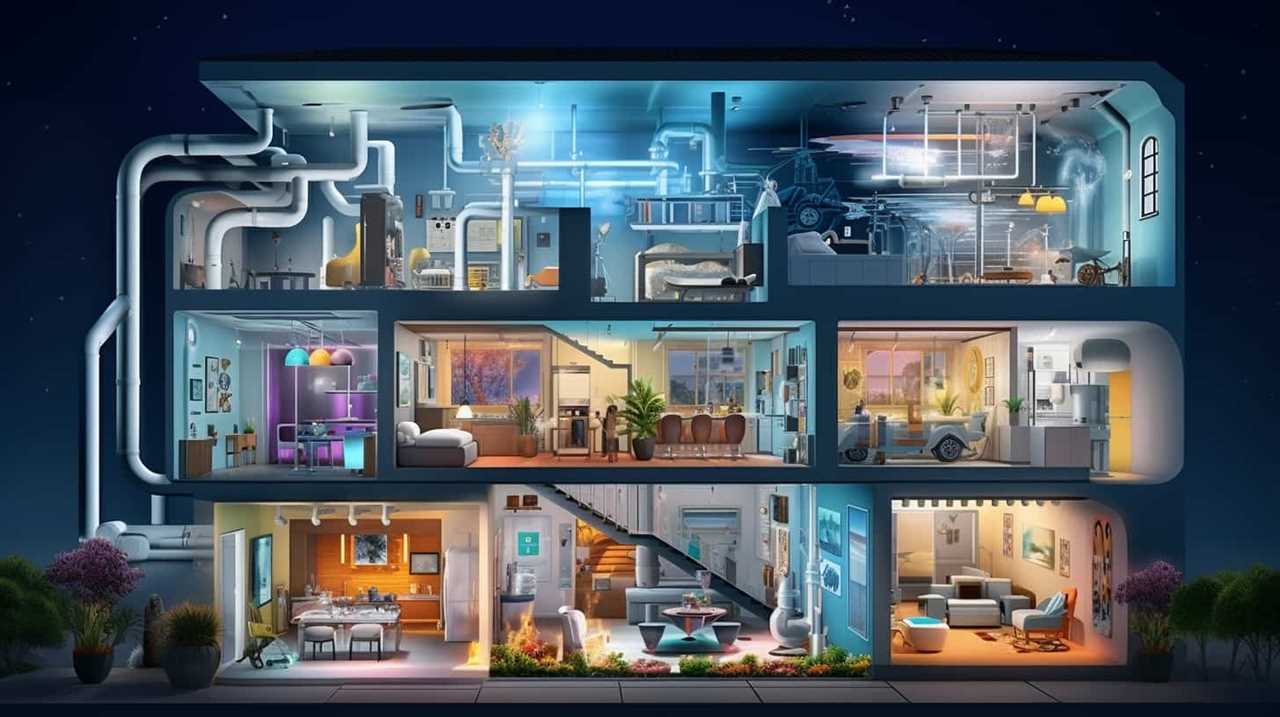
- Schedule regular inspections and cleanings to remove any debris or dirt that may obstruct airflow and reduce efficiency.
- Check and replace air filters regularly to maintain good indoor air quality and prevent strain on the system.
- Monitor refrigerant levels and ensure they’re within the manufacturer’s recommended range to prevent cooling or heating issues.
- Inspect electrical connections and components to identify any signs of wear or damage that may lead to system failure.
- Lubricate moving parts to reduce friction and noise and extend the lifespan of your heat pump.
By following these maintenance practices, you can prolong the life of your commercial-grade heat pump and prevent potential issues.
In the next section, we’ll provide maintenance and troubleshooting tips for commercial heat pump applications.
Maintenance and Troubleshooting Tips for Commercial Heat Pump Applications
To effectively maintain and troubleshoot commercial heat pump applications, we need to understand the key components and potential issues that can arise. Regular maintenance schedules are crucial to ensure optimal performance and prevent costly breakdowns.
Some common troubleshooting techniques include checking for power supply issues, inspecting and cleaning filters, and examining the refrigerant levels. It’s important to regularly inspect and clean the outdoor unit, as debris accumulation can hinder airflow and reduce efficiency.

Additionally, monitoring the temperature and pressure differentials can help identify potential issues such as refrigerant leaks or compressor failures. By following proper maintenance procedures and promptly addressing any troubleshooting needs, commercial heat pump applications can operate efficiently and reliably, providing comfort and satisfaction to customers.
Energy Efficiency and Cost Savings With Commercial Heat Pumps
Commercial heat pumps offer significant energy efficiency and cost savings, making them an ideal choice for businesses looking to reduce their energy consumption and expenses. With the rising costs of energy and increasing concerns about environmental sustainability, investing in cost-effective solutions like commercial heat pumps can have a positive impact both on the bottom line and the planet.
Here are some key benefits of using commercial heat pumps:
-
Reduced energy consumption: Commercial heat pumps utilize renewable energy sources, such as the air or ground, to provide heating and cooling, resulting in lower energy usage and reduced utility bills.

-
Lower carbon footprint: By relying on renewable energy, commercial heat pumps help reduce greenhouse gas emissions and contribute to a more sustainable environment.
-
Long-term cost savings: Although the initial investment in commercial heat pumps may be higher, the long-term cost savings from reduced energy consumption can outweigh the upfront costs.
-
Increased comfort: Commercial heat pumps provide consistent heating and cooling throughout the year, ensuring a comfortable indoor environment for employees and customers.
-
Government incentives: Many governments offer incentives and rebates for businesses that invest in energy-efficient technologies like commercial heat pumps, further enhancing cost savings.
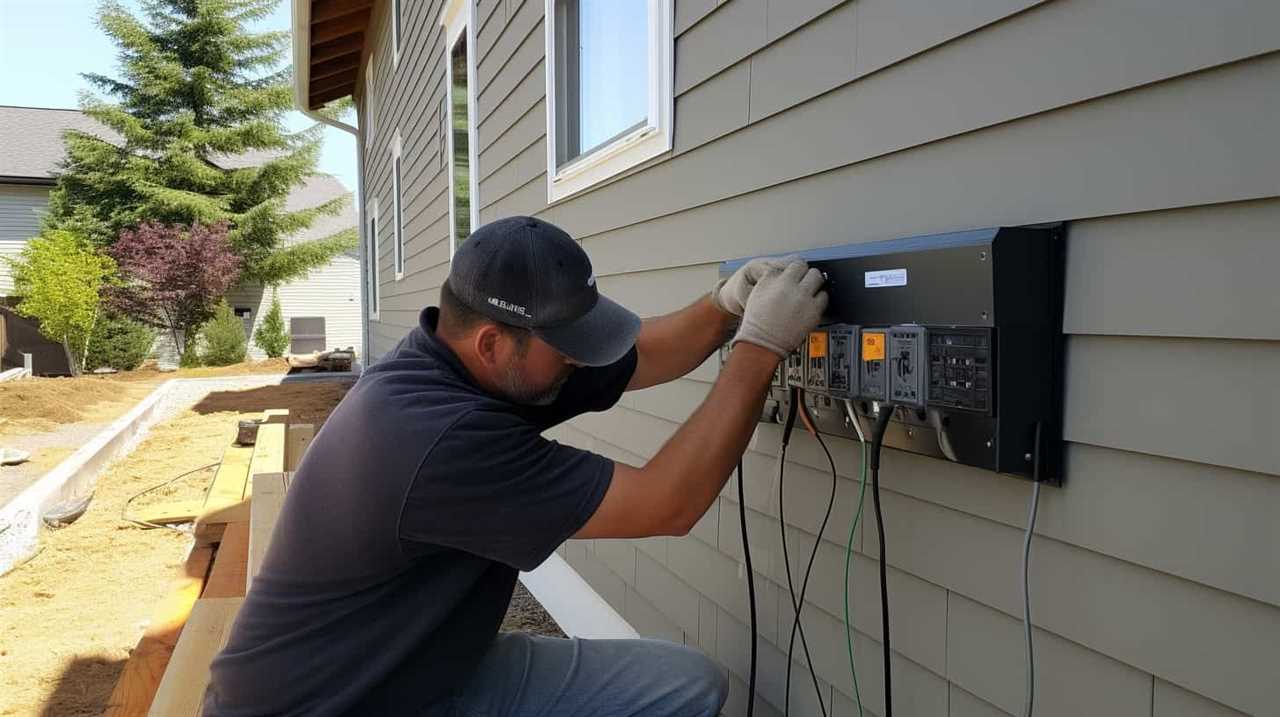
Case Studies: Successful Commercial Heat Pump Installations
We have gathered case studies of successful commercial heat pump installations to provide real-world examples of the benefits and effectiveness of this technology. These case studies highlight the various applications and industries where commercial heat pumps have been successfully implemented, showcasing their versatility and efficiency.
| Case Study | Industry | Benefits |
|---|---|---|
| Case Study 1 | Retail | Reduced energy costs by 30% |
| Case Study 2 | Hospitality | Improved heating and cooling control |
| Case Study 3 | Healthcare | Enhanced indoor air quality |
| Case Study 4 | Education | Lowered carbon footprint |
In Case Study 1, a retail store was able to significantly reduce their energy costs by 30% after installing a commercial heat pump system. This not only resulted in substantial financial savings but also contributed to a more sustainable operation.
In Case Study 2, a hospitality establishment experienced improved heating and cooling control, ensuring optimal comfort for their guests throughout the year. This led to higher customer satisfaction and positive reviews.
Case Study 3 focused on a healthcare facility that installed a commercial heat pump system to enhance indoor air quality. The heat pump’s advanced filtration system effectively removed pollutants and allergens, creating a healthier environment for patients and staff.

Lastly, Case Study 4 showcased how a school implemented a commercial heat pump system to lower their carbon footprint. This sustainable solution aligned with their commitment to environmental stewardship and provided a valuable educational opportunity for students.
These successful case studies demonstrate the wide range of benefits that commercial heat pump installations can offer across various industries. Whether it’s reducing energy costs, improving comfort control, enhancing indoor air quality, or promoting sustainability, commercial heat pumps prove to be an effective and efficient solution for businesses seeking to optimize their heating and cooling systems.
Frequently Asked Questions
What Is the Average Lifespan of a Commercial-Grade Heat Pump?
The average lifespan of a commercial-grade heat pump depends on the manufacturer and maintenance requirements. Regular maintenance can extend its lifespan.
How Much Noise Does a Commercial-Grade Heat Pump Typically Make?
Commercial-grade heat pumps can produce varying noise levels depending on factors such as unit size, location, and sound insulation. Understanding commercial-grade heat pump noise levels is crucial for selecting the right unit for a noise-sensitive environment.

Are There Any Government Incentives or Rebates Available for Installing Commercial Heat Pump Systems?
Yes, there are government incentives and rebates available for installing commercial heat pump systems. These incentives are aimed at promoting energy efficiency, providing cost savings, and supporting the installation process.
Can a Commercial-Grade Heat Pump Be Used for Both Heating and Cooling Purposes?
Yes, a commercial-grade heat pump can be used for both heating and cooling purposes. It offers high efficiency and numerous benefits, such as reduced energy consumption and lower operating costs.
What Is the Typical Payback Period for a Commercial Heat Pump Installation?
The typical payback period for a commercial heat pump installation depends on factors such as energy efficiency benefits and typical maintenance requirements. It is important to consider these factors when evaluating the cost-effectiveness of the investment.
Conclusion
In conclusion, commercial-grade heat pumps are a highly efficient and cost-effective solution for heating and cooling large spaces. They offer significant energy savings and can be tailored to meet specific needs.
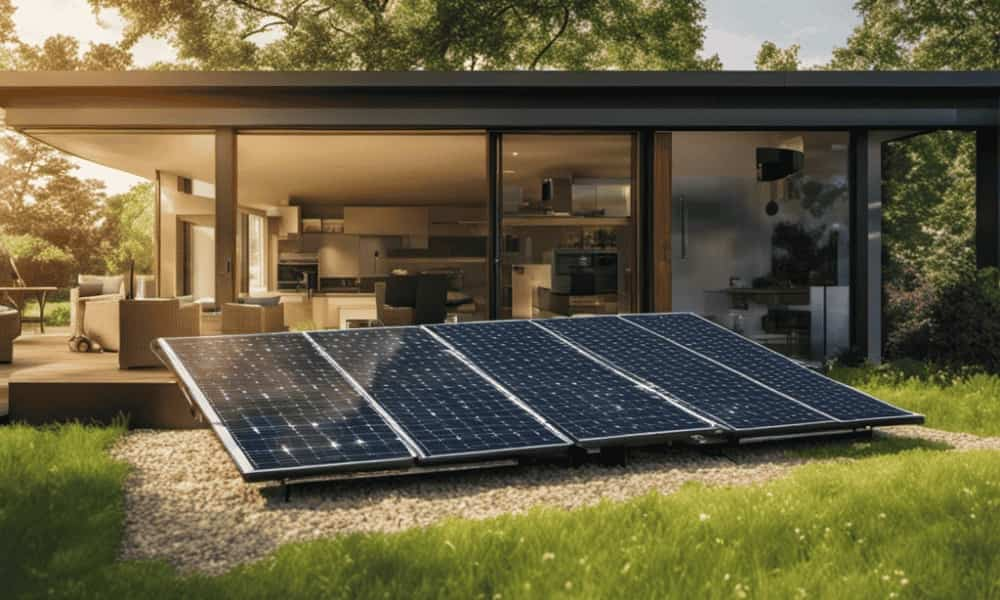
However, it’s crucial to consider factors such as system size, installation best practices, and regular maintenance to ensure optimal performance. Like a well-oiled machine, a properly installed and maintained commercial heat pump can seamlessly regulate temperature, just like a conductor leading an orchestra to perfect harmony.


